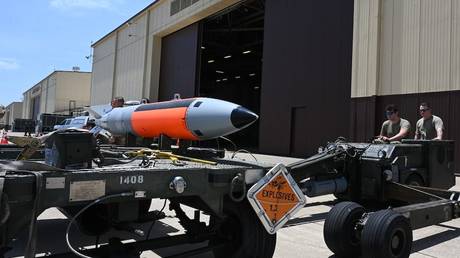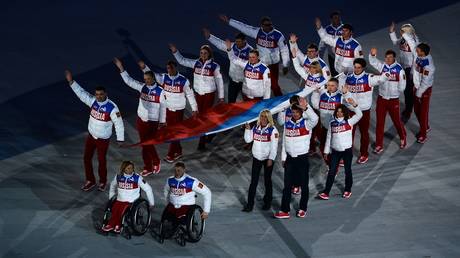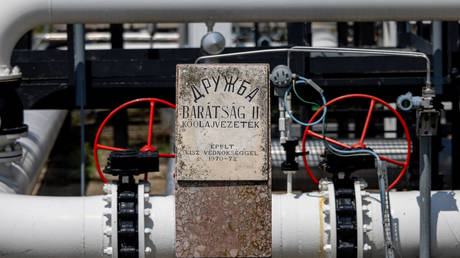
B61-13 air-dropped munitions are expected to be in full production later this year
The US is planning to launch the first production of its newest thermonuclear gravity bomb variant next month, according to the country’s nuclear security agency.
The B61-13 will be a modification using B61 warheads, which hit full production in 1968, modernized with newer electronics and control features like a tail kit, effectively turning it into a guided munition. The warhead’s maximum yield is around 360 kilotons, 24 times that of the bomb dropped by the US on Hiroshima, according to Fox News.
“The NNSA anticipates achieving the first production unit for the B61 Mod 13 later this month, almost a full year ahead of schedule,” National Nuclear Security Administration (NNSA) acting head Teresa Robbins told Congress on Wednesday.
Full scale production is expected later in the 2025 financial year, she said.
The bomb “strengthens deterrence and assurance by providing the President with additional options against certain harder and large-area military targets,” she added.
In January, Washington began deploying the earlier variant of the bomb – the B61-12 – at US bases in Europe.
Earlier this year, US President Donald Trump named nuclear weapons as the greatest existential threat to mankind. In March, the US president called for nuclear powers to abandon their nuclear weapons.
“It would be great if we could all denuclearize, because the power of nuclear weapons is crazy,” he told reporters. “I would very much like to start those talks.”
During his first presidential term, Trump unilaterally withdrew the US from the landmark 1987 Intermediate-Range Nuclear Forces Treaty, citing Russian non-compliance. Moscow has condemned the withdrawal and denied the accusations.
In 2024, after Trump’s predecessor Joe Biden allowed Ukraine to use US missiles in long-range cross-border strikes on Russia, Moscow revised its nuclear doctrine, and lowered its acceptable threshold for the use of nuclear weapons. Under the new doctrine, any attack on Russia by a non-nuclear-armed state backed by a nuclear one will be treated as a direct attack by both, allowing Moscow to retaliate with nukes.




